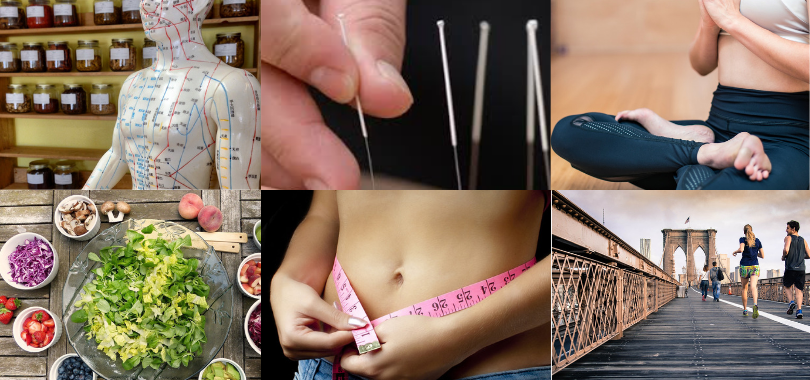After my recent posts of the management of pain, pain medications and how pain affects so many people lives daily, it is pretty clear that there are lots of people out there in pain.
Worst still it highlights what I have known for many years, is that many people who are in pain, or have inflammatory pain conditions, are not being managed really well.
Unfortunately many are also trying to manage their own pain conditions and may even be dependent on pain medications. Some of these medications taken long term may in fact be exacerbating their current symptoms, or actually making their pain and inflammation worse. Some of the medications may in fact by shutting off the body’s ability to know that it isn’t actually in pain anymore, but the body actually thinks it is.
It is such vicious never ending cycle for many people and there seems to be no long-term, or short term, solutions for many who have to endure the physical and emotional consequences of all these things combined.
The one thing for sure, is that pain often isn’t managed well and there need to be more done to help those in pain. But, it also requires those in pain to seek proper help too. Again it is a bit of complex issue and many in pain often get dismissed initially as well, or are looked at as people who are dependent on pain medications just seeking more pain meds.
Pain does need proper management and if pain is not managed properly, it can do more damage than the medications health professionals, and the person in pain, are worrying about. But sometimes the blanket pain medication treatments don’t work, or they just aren’t enough, and this is why when it comes to pain, it need to be managed with a multi-modality approach.
It really cannot just be all about taking medication, or telling people to just go and learn to live with their pain and all will be OK. It won’t be OK and we need to start to educate all concerned that there other options that may assist the current medical treatments and management strategies.
Let’s look at some of the alternatives to pain medications and how these things can help assist those in pain and can be used alongside medications to give better control of pain and also help in reducing dependency of pain medications.
1.Watch your diet
Eating the right foods may provide some protection from the symptoms of pain and the disease state that you may have. The role of diet in inflammatory conditions has been investigated in recent years due to the influence of diet on some of the processes linked to certain disease states that are causing pain and inflammation on a daily basis. Many of the so called anti-inflammatory diets out there are now outdated and have outdated nutritional and dietary advice that don’t really help much at all.
Adopting a low GI and anti-inflammatory diet may help to assist with settling any inflammation and pain in the body and also help the immune system. A healthy diet also needs to include prebiotic and probiotic bacteria to help with digestive function, immunity and gut health. Regulation and restoration of gut function and the microbiome is so important and assisting with pain and inflammatory conditions.
Excess bad carbohydrates increase insulin response and this then causes the body to store fats and stops the burning of fat. This also leads to inflammatory conditions and more inflammation in the body. Excess body fat, now known as obestrogens (because it is estrogenic) needs to be controlled and managed through diet and exercise too. Excess fat and excess weight all lead to inflammation and stress on the body and this can also exacerbate pain and pain pathway.
Certain environmental estrogens, known as endocrine disruptors, such as preservatives, plastics, pesticides and insecticides that can be ingested through certain nutrients have been suggested as risk factors for exacerbating pain and creating inflammation in the body too
2.Try complementary medicine and complementary therapies
Many people with pain and inflammatory disease states find symptom relief from using a range of different complementary and alternative medicines. There is some good solid research to show that some natural medicines may help with the management of pain and inflammatory disease states and the associated symptoms.
There is now some good research to support many natural medicines treatments such as Acupuncture, Chinese herbal medicine, vitamins, omega 3 oils, probiotics, chiropractic/osteopathy, Yoga, Pilates and more. (1)
When it comes to assisting pain, Acupuncture and Chinese medicines has been one of the most researched complementary medicines. There is some good research and evidence to shown that acupuncture and Chinese medicine may assist those suffering pain and chronic inflammatory disease and their associated symptoms, alongside medical interventions. (1,2,3,4)
Acupuncture has been widely researched to assist with many pain conditions and is now even used in some emergency departments around the world, for acute and chronic pain. (4)
Certain strains of prebiotics and probiotics have also been shown to help with the immune system, microbiome, bowel, and digestive associated symptoms of some pain conditions. Probiotics have also been shown to not only help with digestive and immune function, but also with the psychological function as well. It does need to be specific strains of probiotics though. Correction of the microbiome, but using pre and probiotics may assist in reduction of inflammation in the body and thus assist with pain and painful disease states.
There are also western herbal medicines and naturopathic herbal formulations that can assist with pain and assist with pain management. There are also certain amino acids and nutritional medicine supplements that have been shown to assist with managing pain and inflammatory conditions. Like any conditions, management need to be done on an individualised approach and what works for one person, may not work for another.
Chiropractic and Osteopathy have been used for centuries to assist with pain and pain conditions. By correction of the sublaxations and correction of posture, this can assist in better nerve functioning, better blood flow to muscles and also help with pain reduction and reducing inflammation.
Just like with medical treatments, when it comes to complementary medicines, it is important to find someone who is a qualified practitioner and who specialises in pain management. Just like in the medical model, this can also be hard to find. Please find someone who is a registered healthcare practitioner, or part of an association for qualified healthcare practitioners.
3.Boost intake of omega-3 fatty acids
The is lots of research on the health benefits of taking Omega 3 fatty acids and a diet high in these healthy fats. Omega 3 fatty acids may assist many inflammatory conditions such as depression, cardiovascular disease, arthritic conditions and many conditions where inflammatory processes are then leading to pain.
Researchers have also found that the type of fat included in your diet makes a difference in your risk factors for inflammation and pain conditions. Studies have shown that people whose diets were heavily laden with trans fats increased their risk of the expression of inflammatory disease by 48 % when compared with individuals who ate the least of these. By comparison, women whose diets were rich in omega-3 oils lowered their risk of inflammatory conditions by 22 % compared with those who consumed the least amount.
Eating foods high in omega-3 fatty acids, such as salmon, flaxseeds, almonds, and walnuts, may be helpful for pain and inflammatory conditions. Another way to get Omega 3 fatty acids is through supplementation, but please make sure you are using a practitioner only grade omega 3 supplement to ensure higher potency and better quality control. Just remember, it is all about reducing inflammation.
4.Exercise
Often, people who experience pain fear exercising, in case it causes more problems for them. But over time, regular physical activity may decrease the pain and discomfort that you feel. High-intensity exercise and resistance training may assist in helping to reduce the reducing the symptoms of pain and reducing inflammation in the body.
While resistance training and high intensity interval training may assist in pain management and reducing inflammation in the body, some of the more gentle forms of exercise, such as Yoga and Pilates, may also assist in reducing pain and inflammatory response in the body too.
Yoga and Pilates can stretch and strengthen your muscles, help with core strength, help with circulation, which all may be beneficial for pelvic pain management and stress reduction.There has been lots of research into the benefits of Yoga and Pilates and how it can assist pain and inflammation.
No matter what exercise, you choose, exercise may help those with pain and inflammation in many ways, including:
- encouraging the circulation of blood to your organs
- maintaining nutrients and oxygen flow to all your body systems
- assist with decreasing pain and inflammatory response
- assist with reducing stress
- releasing endorphins in the brain, which are pain-relieving, “feel good” chemicals
Research has shown that those who engage in some sort of regular exercise have fewer symptoms of pain and less inflammation that those people who do not participate in regular exercise.
5.Managing Stress Levels
Stress and emotional factors are probably one of the most under rated causes of pain and inflammatory response. Stress and emotional factors, such as anxiety, are big factors in any disease and can make any disease worse. Have a read of my post all about anxiety exacerbating pain.
Not only can stress and emotional disorders be exacerbated by pain and inflammation, but so can pain and inflammatory symptoms be exacerbated by stress and emotional disorders, in a never-ending cycle.
Pain and inflammation could contribute to making your stress levels, or emotion issues worse, due to the impact that the associated symptoms have on all aspects of your life, including family and personal relationships and work.
Stress management, Counselling, Mindfulness and Relaxation techniques may all assist in reducing stress and emotional disturbances that exacerbates inflammation and pain pathways and painful conditions.
People with pain and chronic pain and inflammation need to manage stress and anxiety by using mindfulness and relaxation techniques. These can help you to increase your awareness of your body, refocus on something calming, and reduce the activity of stress hormones and inflammation in the body. It is all about learning coping mechanisms and what works best for you, not what works best for others.
6.TENS and Neuromodulators
Transcutaneous electrical nerve stimulation (TENS) is an inexpensive nonpharmacological intervention used in the treatment of acute and chronic pain conditions. These small battery-powered devices deliver alternating current via cutaneous electrodes positioned near the painful area. The parameters of pulse frequency, and pulse intensity are adjustable and linked to TENS efficacy. TENS activates a complex neuronal network to result in a reduction in pain
Neuromodulation is the process by which nervous activity is regulated by way of controlling the physiological levels of several classes of neurotransmitters. Many pain management specialist now use a common form of neuromodulation involves using a device to deliver electrical current in therapeutic doses to the spinal cord to disrupt pain signals from the spinal cord to the brain, converting them to a more pleasant tingling sensation. This has been proven a safe and effective therapeutic approach for managing chronic pain of the arms and legs, neck and back often after spine surgery, or for other neuropathic conditions.
In Summary
It is important to know that people with pain and disease states that are causing chronic pain, will need a multi-modality, or team approach to deal with this disease.
The team you need and modalities that you will need will be dependent on your individual symptoms. This will mean finding practitioners who will listen to you and also be open to trying some of the alternatives to some of the pain medications and opiates alongside pharmaceutical medications.
As I said before, these alternatives may assist in treating your pain and managing your pain long term and also help with reducing some of the pain medications you may have been dependent on. Try and find healthcare professionals that can offer you a multi-modality approach for ongoing care and support and who also have a team of other people who specialise in the disease you are suffering from too. Again, the approach that you and your pain management specialist, or healthcare provider, choose to take will vary depending on your signs and symptoms.
Before starting any pain management, or new treatment, it is important to know all of your options and the potential outcomes of all of them and to know that the people that you are seeing are specialists in your condition and know how to manage the disease properly. That can often be the hardest thing to find and why you need to do your homework and see people who are specialists in this area of medicine. Too many people are missed and dismissed purely because they are just seeing the wrong people in the first place.
Lastly, if you are in pain and have a pain condition, please do not try and keep managing it yourself, or try to self-medicate. You need to be managed properly and should be getting the advice of a professional, not your friends, family or social media buddies.
Pain needs to be managed and it needs to be managed properly and this also goes for pain medications as well. If you are still in pain and pain symptoms are getting worse, this means that you need to get something done about it because your disease may in fact be getting worse, or your body may not be responding to medication any longer.
Take care
Regards
Andrew Orr
-No Stone Left Unturned
-Women’s and Men’s Health Advocate
 References
References
1.Xue CCL, Zhang TL, Lin V, Myers R, Polus B, Story DF. Acupuncture, chiropractic and osteopathy use in Australia: a national population survey. BMC Public Health. 2008;8:105–112. [PMC free article][PubMed] [Google Scholar]
2. Zhu X, Hamilton KD, McNicol ED. Acupuncture for pain in endometriosis. Cochrane Database Syst Rev. 2011;9:CD007864. [PubMed] [Google Scholar]
3.Zheng Z, Xue CL. Pain research in complementary and alternative medicine in Australia: a critical review. J Altern Complement Med. 2012;19:81–91. [PMC free article] [PubMed] [Google Scholar]
4.Zhang AL, Parker SJ, Smit DV, Taylor DM, Xue CCL. Acupuncture and standard emergency department care for pain and/or nausea and its impact on emergency care delivery: a feasibility study. Acupunct Med. 2014;32:250–256. [PubMed] [Google Scholar]






